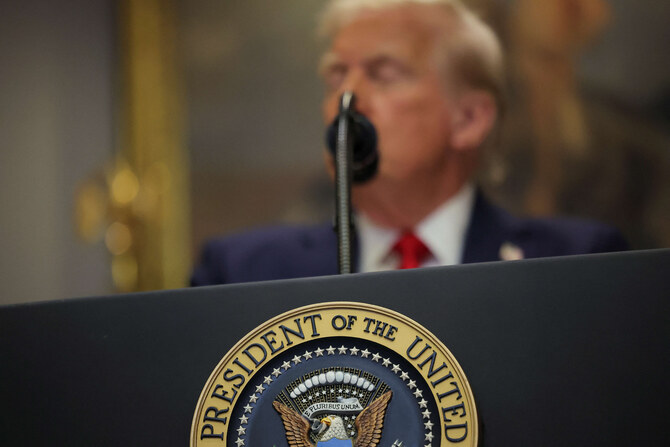CAIRO: A wave of venture capital funding has washed over the Middle East and North Africa region, prompting transformative change in the entrepreneurial landscape.
Saudi Arabia’s government is leading the shift through a subsidiary of the SME Bank, part of the National Development Fund.
The Kingdom’s Saudi Venture Capital has made significant strides in shaping the private investment landscape, deploying finance across 40 investment funds and over 700 startups and small and medium-sized enterprises.
This was highlighted in the latest Impact Report issued by SVC, which detailed its contributions since its inception in 2018.
The document revealed that SVC’s total investments have reached SR2.6 billion ($693.1 million), with the overall impact of these, including partner commitments, estimated at around SR13.6 billion.
These investments span various sectors critical to economic diversification, such as e-commerce, fintech, healthcare, educational technologies, transportation, and logistics.
“SVC plays a crucial part in stimulating the private VC investment to sustain and foster the steady growth of the VC ecosystem in the Kingdom,” Nabeel Koshak, CEO of SVC, said.
“SVC’s strategy, since its inception in 2018, contributed to increasing the number of investors in Saudi startups, encouraging existing and new financial companies to establish VC funds, and motivating regional and global funds to invest in Saudi startups,” Koshak stated.
“Accordingly, the funding deployed into Saudi Arabian startups grew 21 times to a record-high of $1.4 billion in 2023 versus $65 million in 2018, the year SVC was launched,” he added.
Significantly, SVC’s strategic initiatives have positioned Saudi Arabia as a leader in venture investments within the MENA for the first time in 2023.
This milestone reflects the broader economic and financial sector evolution under Saudi Vision 2030, aimed at enhancing the national economy.
Saudi Arabia’s Penny Software closes undisclosed pre-series A round
Closing its pre-series A funding round, Saudi Arabia’s Penny Software raised an undisclosed sum from Iliad Partners, joined by GSI and US-based Knollwood Investments, alongside existing investors such as Dallah Investment, Hambro Perks Oryx Fund, Class 5 Global, Altuwajiri family fund, and strategic angel investors.
Founded in 2020 by Iyad Al-Dalooj, Majid Al-Dalooj, and Mohamad Ibrahim, Penny Software is a business to business Software-as-a-Service procurement startup that digitizes the entire source-to-pay process, thereby enhancing spend efficiency, governance, and compliance.
“This investment from Iliad Partners, alongside the continued support from our existing and new investors, represents a significant vote of confidence in Penny Software’s vision and our team’s ability to execute,” Iyad Al-Dalooj, the CEO, said.
“We are excited to leverage this partnership to scale our operations, enhance our product offering, and solidify our position as a leader in the procurement software industry. The future of procurement is here, and Penny Software is at the forefront of this transformation,” he added.
This new capital infusion is poised to fuel Penny’s ambitions for regional and global expansion.
This follows a successful $5 million seed funding round in 2021, led by Outliers Venture Capital with participation from Wamda, Shorooq Partners, Hambro Perks ORYX Fund, Class 5 Global, and strategic angel investors.
Penny Software aims to leverage this investment to further enhance its platform capabilities and broaden its market reach, reinforcing its position in the competitive SaaS industry.
The company claims that it is set to manage a gross transaction value of over $1 billion this year, and ease procurement for thousands of companies globally.
“Saudi Arabia is an economy that is undergoing a major transformation in which technology is playing a key role. This is our first investment in the Kingdom, and we plan to invest a significant portion of our fund in this market, supporting strong founders on their journey from the pre-series A stage and onwards,” Christos Mastoras, founder and managing partner of Iliad Partners, stated
UAE’s DocsInBox closes $500k in a funding round
UAE’s e-invoicing and procurement startup DocsInBox closed a $500,000 funding round from angel investors to boost its presence.
Founded by serial entrepreneurs Leonid Dovbenko and Stanislav Seleznev, DocsInBox significantly streamlines invoicing and procurement processes, saving up to 1 million hours each month, the company claimed.
The platform enables purchasing agents to place orders in just three clicks, while accountants can complete tasks in 13 seconds that previously took 300 seconds.
By automating procurement, DocsInBox reduces manual labor by 15 percent, operational costs by 5 percent, and food costs by 8 percent.
UAE’s U-topia secures $850k in funding round
UAE-based Web3 services provider U-topia has secured $850,000 in funding from GDA Capital.
Established in 2021 by Jérémy Mahieu and Nicolas Prévost, U-topia operates as a Web3 entertainment company that merges global intellectual property licensing in GameFi, artificial intelligence music, and video entertainment supported by non-fungible token provenance.
The newly acquired investment is earmarked for the development of advanced features and technologies on the U-topia platform, aiming to enhance its offerings in the dynamic Web3 landscape.
Nigeria’s VC firm Verod-Kepple Africa Ventures closes $60m fund
Nigeria-based VC firm Verod-Kepple Africa Ventures has concluded a final close of $60 million for its pan-African VC fund, led by existing investors and new investors, including SCM Capital from Nigeria and institutional investors from Japan, including Taiyo Holdings and C2C Global Education Japan.
Formed in 2021 as a joint venture between Kepple Africa Ventures and Verod Holdings, VKAV is led by partners Satoshi Shinada, Ryosuke Yamawaki, and Ory Okolloh.
The fund aims to bridge the funding gap for African startups, especially for companies moving to series A and B stages.
Egypt’s VC firm Beltone teams up with UAE’s CI Venture to manage a $30m fund
Egypt’s Beltone Venture Capital, under Beltone Holding, has teamed up with CI Venture Capital from UAE’s Citadel International Holdings to manage a $30 million fund aimed at nurturing fast-growing startups.
This collaborative fund is set to invest in pre-seed and seed funding rounds of innovative tech startups across the MENA region while also continuing to support standout performers within its existing portfolio.
In recent months, the fund has actively begun deploying capital, finalizing investments in several startups, including Bosta, Trella, Qlub, and ariika.

























